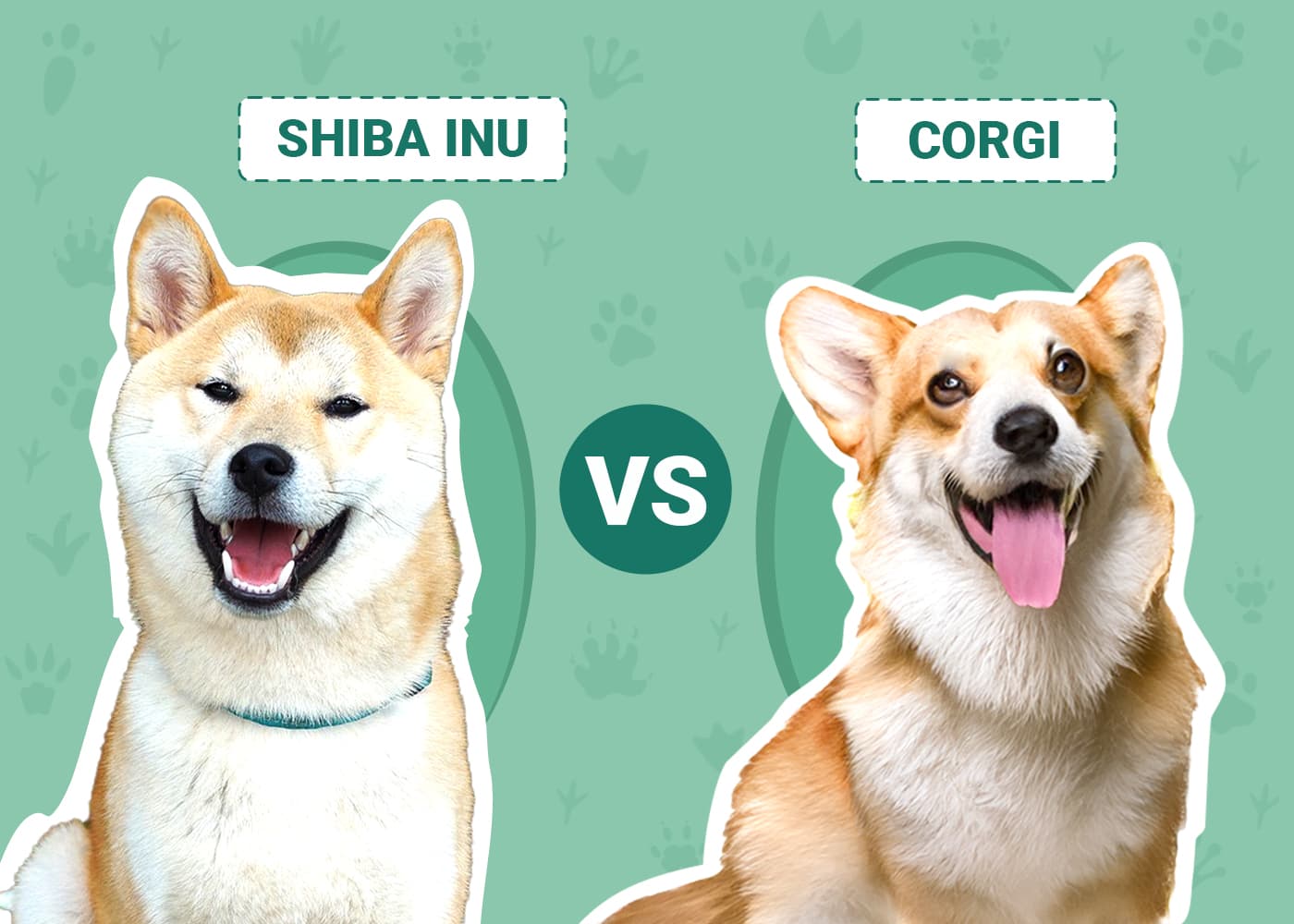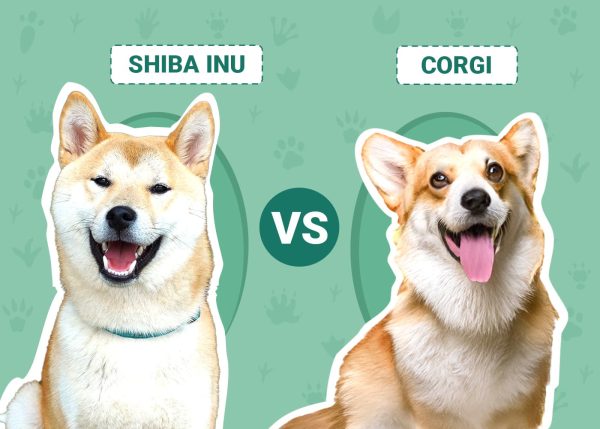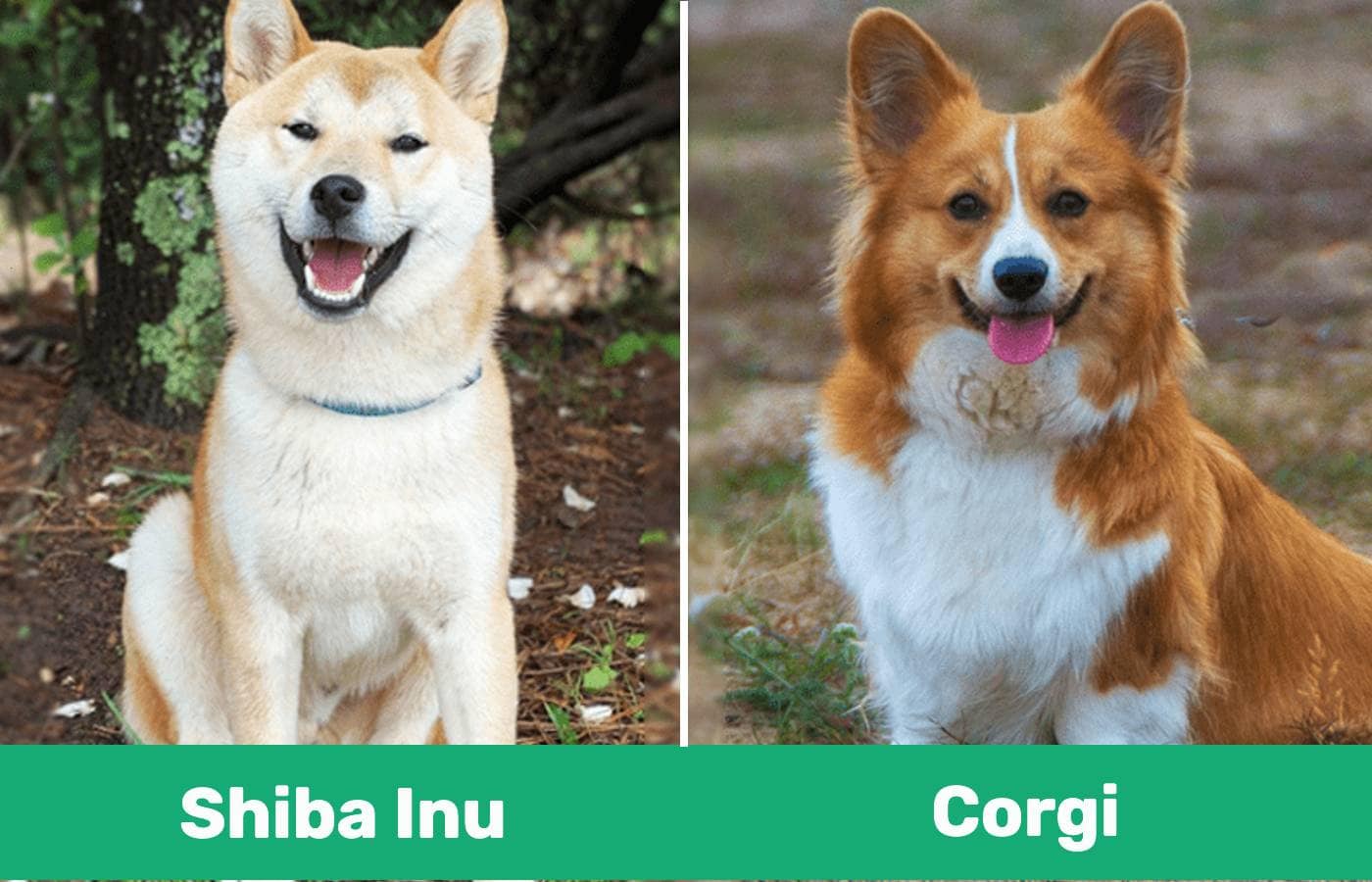The Shiba Inu and Corgi may look somewhat similar. However, they are entirely different in terms of their needs and personality. They are not related at all—despite their similar appearances.
Which dog you should adopt depends mainly on your lifestyle and what you’re looking for in a dog. In this article, we’ll take an in-depth look at both breeds and help you choose the best one for you.
Visual Differences
Image Credit: No-longer-here (L), Michel_van_der_Vegt (R), Pixabay
- Average Height: 13 – 14 inches
- Average Weight: 18 – 22 pounds
- Lifespan: 13 – 15 years
- Exercise: High
- Grooming needs: Daily brushing
- Family-friendly: Yes, with socialization
- Other pet-friendly: With socialization
- Trainability: Independent and stubborn
- Average Height: 8 – 13 inches
- Average Weight: 24 – 37 pounds
- Lifespan: About 12 years
- Exercise: Moderate
- Grooming needs: Daily brushing; occasional baths
- Family-friendly: Yes
- Other pet-friendly: Dog-friendly; will chase cats
- Trainability: Moderate, eager to please (but can be stubborn)
 Shiba Inu Overview
Shiba Inu Overview
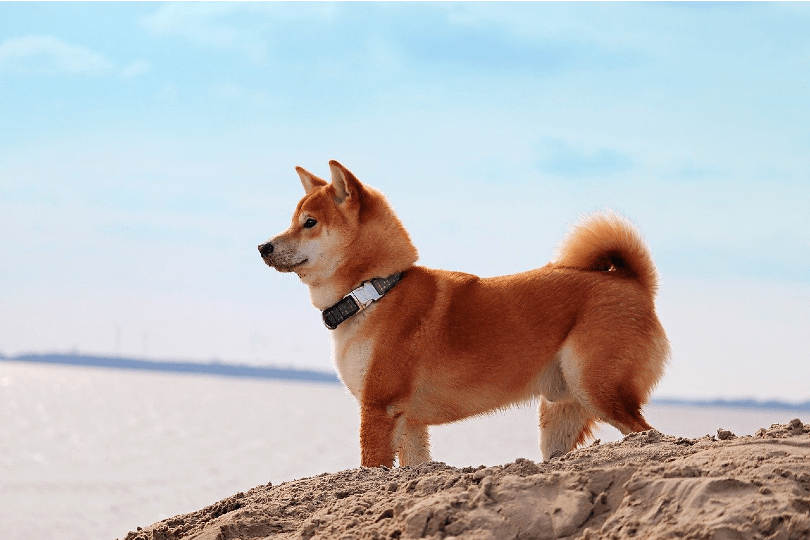
The Shiba Inu developed originally as a hunting breed in Japan. It is considered a small-to-medium breed with distinctive Spitz characteristics, similar to other Japanese dogs.
They are alert and agile dogs built to hunt on mountainous terrain.
Temperament
These dogs tend to be independent. They are not as people-oriented as Western breeds, making them more challenging to train and handle.
The Shiba Inu is known for being very clean. They tend to groom themselves like cats, licking their paws and legs extensively. They are often easier to housebreak.
In many cases, these dogs are not nearly as trainable as many Western breeds. However, this doesn’t speak to their overall trainability. They would rather follow their reasoning than listen to their owners.
The Shiba Inu is also known for its distinctive “Shiba scream.” Many dogs will scream whenever they are handled in a way that they consider unacceptable.
They may also emit a similar sound during periods of excitement. If their owner is gone for a while, it isn’t odd for them to produce this sound upon their return.
Health
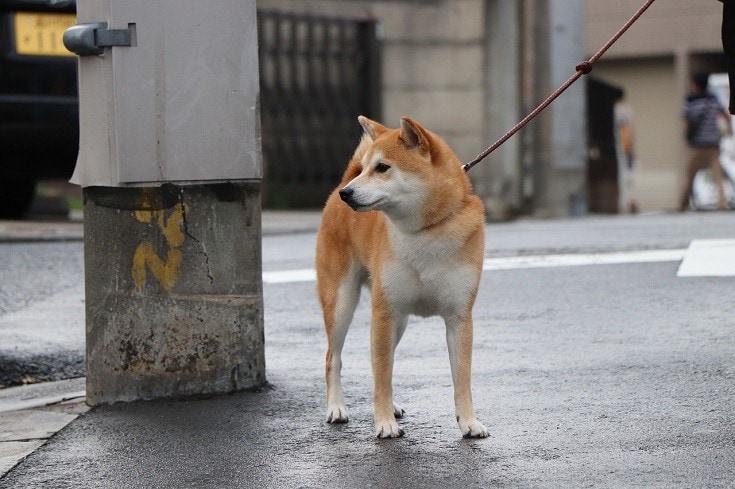
For the most part, this breed is relatively healthy. They are an older breed that is not bred for looks alone. They are exceedingly practical animals, and their health shows it.
They are prone to a few problems, though. Joint issues are the most common in this breed, including hip dysplasia and luxating patella. These conditions have a genetic basis, so adopting from a qualified breeder is the best way to avoid them.
However, they may also be irritated by environmental factors. For instance, dogs that are overfed as puppies are more likely to develop hip dysplasia later in their life.
Therefore, you should be very careful only to feed your dog the exact amount of food they require. If you have questions, you should speak with your vet about the amount of food your canine needs.
On top of this, eye problems are not unheard of. This may include glaucoma and cataracts. These conditions are most common in older dogs, of course. But, they also occur in younger dogs with genetic predispositions.
These dogs are pretty long-lived. Most Shiba Inus live for 12 to 16 years. Exercise is essential to ensure that they live a long and healthy life, though. These dogs were not made to sit around for much of the day.
Grooming
The Shiba Inu is extremely clean, so grooming is required minimally. They’re a lot like cats – and most people do not groom their cats very much.
Most Shiba Inus do not like water, which makes bathing difficult. (Much like a cat, again.) However, we recommend getting them used to water when they are young to make bathing easier later.
Their double-coat is waterproof and does an excellent job of keeping them clean. Their undercoat can protect them from temperatures that are well below freezing. Again, they’re practical dogs for the most part.
They do shed quite a bit due to their double coat, though. The Shiba Inu’s large amount of shedding can be a bit of a nuisance. Shedding tends to be heaviest when the seasons change. However, this is hormonally-driven, so it may not exactly line up with your local seasons.
Daily brushing can help alleviate some of this problem, though. You should not shave or cut a Shiba Inu’s fur, as this eliminates its ability to protect them from the elements.
Suitable for:
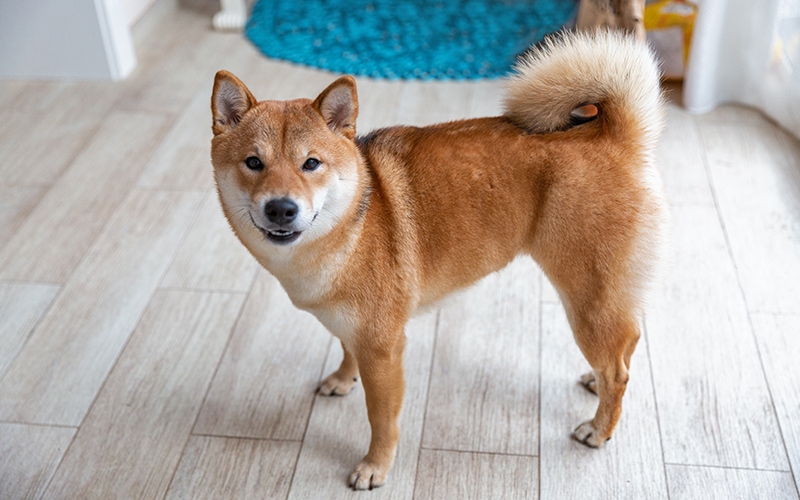
Shiba Inus are most suited for experienced, active dog owners who are looking for a Spitz-type dog. The Shiba Inu is the smallest Spitz-type dog, making it a good option for those living in smaller spaces.
This dog does need quite a bit of time, essentially to commit to training and exercise. For this reason, we recommend them for those who can devote at least an hour a day to their dog. Otherwise, it may be challenging to meet all their needs.
Corgi Overview
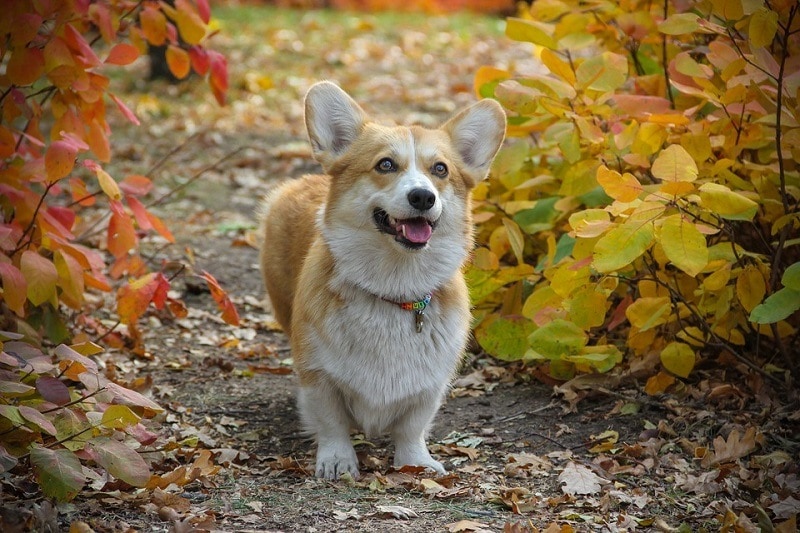
The Corgi is a well-known dog–even if they aren’t exceedingly popular in the United States. They were originally bred as hunting dogs in Wales. Their long, short bodies allowed them to fit into animals’ burrows, driving them out towards the awaiting hunters.
Temperament
Despite their small size, these canines have larger-than-life personalities. They often think they are much larger than they are. However, they are generally exceedingly happy dogs. They’re playful and quite affectionate to everyone.
Corgis are not guard dogs in the least. They are far too friendly towards strangers.
This breed is known for following their owners around the house. They love being the center of attention and are generally very eager to please. This makes training relatively straightforward, as they will often do whatever is asked of them.
Corgis do need quite a bit of attention, though. They can act out and get destructive if they are not given enough attention. We don’t recommend these dogs for those that need to leave them alone for much of the day.
Training is necessary to ensure that these canines understand proper manners. Otherwise, their exuberance can get the best of them. They are pretty easy to train when approached correctly, though.
Health
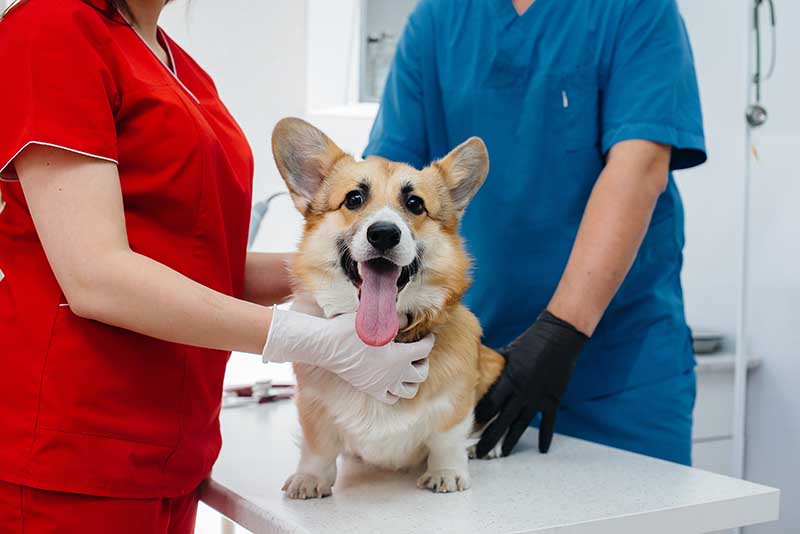
Due to their long back, the Corgi is not the healthiest breed. Their average lifespan is just over 12 years old. According to a survey done by the Kennel Club UK, the highest causes of death are cancer and “old age”.
Pembroke Welsh Corgis are particularly prone to eye problems. Nearly 25% of this breed has eye problems of some sort, while only 6.1% of the Cardigan Corgi does. Besides this slight deviation, both of these Corgi breeds are pretty similar as far as health goes.
Eye conditions can include everything from progressive retinal atrophy and canine glaucoma. PRA often occurs in dogs over 6 years old, while glaucoma is more common in very senior dogs.
PRA is a progressive disorder that isn’t easy to treat. Often, these dogs end up blind at some point.
Cataracts can be removed simply through surgery and often don’t reoccur after it has been treated once.
Both Corgi breeds experience some reproductive problems. Many require Cesarean sections and often have false pregnancies, which makes them slightly harder to breed. For this reason, they may be slightly more expensive.
They are also prone to skeletal problems, including arthritis. They are somewhat prone to IVD, which is a back condition that affects canines with long backs. Corgis have pretty long backs, so they can sometimes develop IVD.
Grooming
Corgis tend to shed quite a bit. They have double-layer coats, which help them stay warm and dry while hunting (their original purpose). However, their undercoat sheds considerably.
They will permanently shed at least a little bit, but they tend to shed more during changes in the seasons. We highly recommend you plan on brushing your Corgi regularly. Daily is sometimes necessary during periods of severe shedding.
If you can brush them daily year-round, it is often best.
This brushing session also helps keep your dog clean. On top of removing dead hair, the brush will also remove dirt and debris. You’ll be able to go longer between baths if you brush your dog.
Speaking of baths, you will need to bathe your Corgi regularly. Those with thicker fur often need to be bathed more often, as their coat tends to trap more dirt. When your Corgi gets smelly, you should bathe them.
However, that doesn’t mean that they need to bathe all the time. Too much bathing can dry out their skin and coat, leading to irritation. Be careful to use a sensitive skin shampoo specifically designed for dogs when you bathe them.
Suitable for:
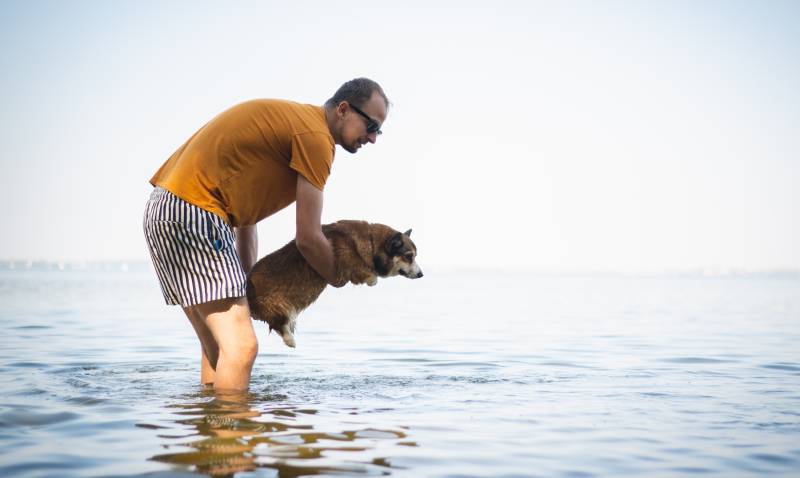
Corgis are great companion animals. They are suited to those looking for a people-oriented dog that will follow them around the house. They love to be the center of attention and often require quite a bit of attention to thrive. For this reason, we only recommend them for those that spend much of their day at home or who can utilize the services of a pet sitter during the day.
Corgis are pretty easy to train and take care of. However, they are prone to some health problems. We recommend setting aside an emergency fund to ensure that you can pay for their medical needs.
Which Breed Is Right for You?
It mainly depends on the type of dog you’re looking for. The Shiba Inu is not necessarily as friendly as the Corgi. They tend to be more devoted to their owners, while the Corgi is a friendlier dog. For those looking solely for a companion, a Corgi may be best.
However, Shiba Inus also make excellent companion animals, as long as you socialize them properly.
Both breeds require quite a bit of work, so we don’t recommend them for those who are gone much off the day. Both can be prone to separation anxiety and require significant amounts of attention.
You may also want to read:
- Male vs. Female Shiba Inu: What Are the Differences?
- Shiba Inu vs Korean Jindo: Differences Explained (With Pictures)
Featured Image Credit: Flickr upload bot, Wikimedia (Up), ElfinFox, Pixabay (Down)

